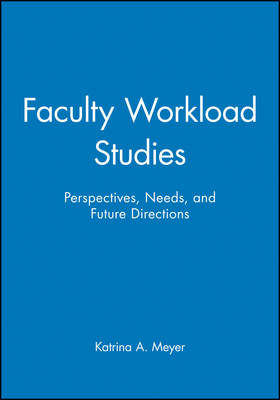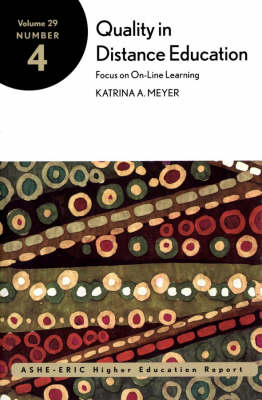J-B Ashe Higher Education Report Series (Aehe)
3 total works
What makes online learning engaging to students? Engagement depends upon designing learning that is active and collaborative, authentic and experiential, constructive and transformative. While students and instructors can inadvertently act in several ways to decrease student engagement in online coursework, research indicates a range of options that have been proven to engage students in their online courses. This report explores the learning theories, pedagogies, and active learning options that encourage student engagement, push them to think more deeply, and teach them how to learn. It guides instructors on how to evaluate the effectiveness of technological and software tools, and to evaluate and assess the activities, learning, and retention occurring in their online classes. Finally, it will help instructors find inspiration for engagement from the face-to-face settings that can be translated into the online environment. This is the 6th issue of the 40th volume of the Jossey-Bass series ASHE Higher Education Report. Each monograph is the definitive analysis of a tough higher education issue, based on thorough research of pertinent literature and institutional experiences.
Topics are identified by a national survey. Noted practitioners and scholars are then commissioned to write the reports, with experts providing critical reviews of each manuscript before publication.
Topics are identified by a national survey. Noted practitioners and scholars are then commissioned to write the reports, with experts providing critical reviews of each manuscript before publication.
Summarizes state studies of faculty workload and research on
faculty productivity. Discusses problems with existing study
designs and their results. Offers solutions with greater potential
for improving productivity, with a focus on student learning,
curricula, and mission.
faculty productivity. Discusses problems with existing study
designs and their results. Offers solutions with greater potential
for improving productivity, with a focus on student learning,
curricula, and mission.
Breaking through the myths and misunderstandings surrounding web-based learning, this book focuses on the particular characteristics of on-line education, a distance learning technology that can enhance on-campus courses as well. Drawing from her own experience as director of distance learning and technology at the University and Community College System of Nevada, author Katrina A Meyer examines the need to evaluate web-based learning on its own terms. She presents several examples of measures for quality web-based learning, and argues for the next phase of research in the field to focus on which technology works with which student and which learning objective in which discipline and why. With a synthesis of the emerging body of literature and research on web-based learning, Meyer highlights creative approaches to quantitative and qualitative studies and acknowledges the serious and balanced personal insights that researchers are developing for this fast growing form of learning.
She delivers compelling reasons why one cannot evaluate the use of technology separate from the instructional uses made of it and argues that basic human psychology is the key to unlocking our relationship with the web. As a rapidly developing, ever-changing mode of learning, on-line education challenges academic researchers to continually question their assumptions and renew their attention to student learning. This book is a valuable tool to assist educators in achieving that goal.
She delivers compelling reasons why one cannot evaluate the use of technology separate from the instructional uses made of it and argues that basic human psychology is the key to unlocking our relationship with the web. As a rapidly developing, ever-changing mode of learning, on-line education challenges academic researchers to continually question their assumptions and renew their attention to student learning. This book is a valuable tool to assist educators in achieving that goal.


